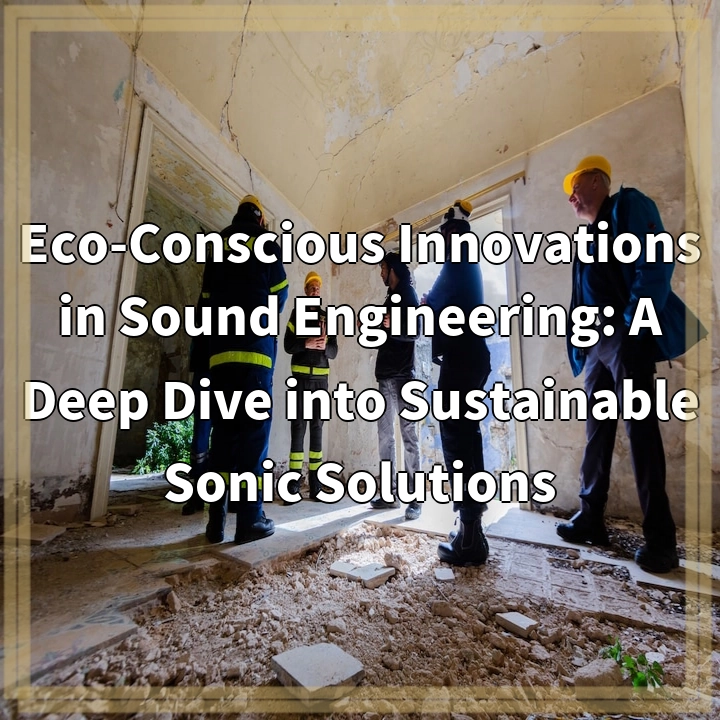
What it is:
Eco-Conscious Innovations in Sound Engineering refers to the development and implementation of sustainable practices and technologies within the realm of sound production, recording, and reproduction. Sound engineers, musicians, and producers are increasingly seeking environmentally-friendly solutions to reduce the negative impact that traditional sound engineering processes can have on the environment.
Real-World Problems:
Despite the numerous creative and technical advantages of sound engineering, there are several environmental challenges associated with traditional practices:
1. Energy Consumption:
Conventional sound engineering relies heavily on energy-intensive equipment such as amplifiers, mixers, and speakers. The energy demands of large-scale events, concerts, or recording sessions can be substantial, contributing to greenhouse gas emissions and a significant carbon footprint.
2. Electronic Waste:
The fast-paced advancement of technology leads to frequent upgrades and replacement of sound equipment. Disposing of outdated or malfunctioning equipment poses a significant environmental concern, as electronic waste contains hazardous substances that can harm the ecosystem and human health if not properly managed.
3. Noise Pollution:
Sound engineering, especially in live events or recording studios, can contribute to noise pollution. Excessive noise levels can disturb ecosystems, wildlife, and local communities, affecting their wellbeing and natural habitats.
By addressing these challenges, eco-conscious innovations in sound engineering aim to reduce environmental impact while maintaining the quality and integrity of sound production.

Summary of Solutions:
Various eco-conscious innovations in sound engineering have been developed to tackle the environmental challenges mentioned:
1. Energy-Efficient Equipment:
The adoption of energy-efficient audio equipment, such as amplifiers and speakers, can significantly reduce energy consumption without compromising sound quality. These innovative technologies are designed to maximize energy efficiency and minimize waste heat.
2. Sustainable Power Sources:
Incorporating renewable energy sources, such as solar panels or wind turbines, can help power sound systems during events or recording sessions. By using clean energy sources, the reliance on fossil fuels is reduced, leading to a lower carbon footprint.
3. Equipment Lifecycle Management:
Implementing responsible equipment lifecycle management practices can mitigate the negative environmental impact of electronic waste. This includes recycling and refurbishing old equipment, as well as sourcing equipment from manufacturers with take-back programs to ensure proper disposal.
4. Noise Abatement Measures:
Sound engineers can utilize innovative techniques such as advanced sound insulation, directional sound design, and noise monitoring systems to minimize noise pollution. By controlling sound propagation and limiting sound leakage, the impact on local communities and wildlife can be reduced.
These sustainable sonic solutions not only contribute to a greener and more environmentally friendly sound engineering industry but also help raise awareness about the importance of environmental responsibility within the field.















